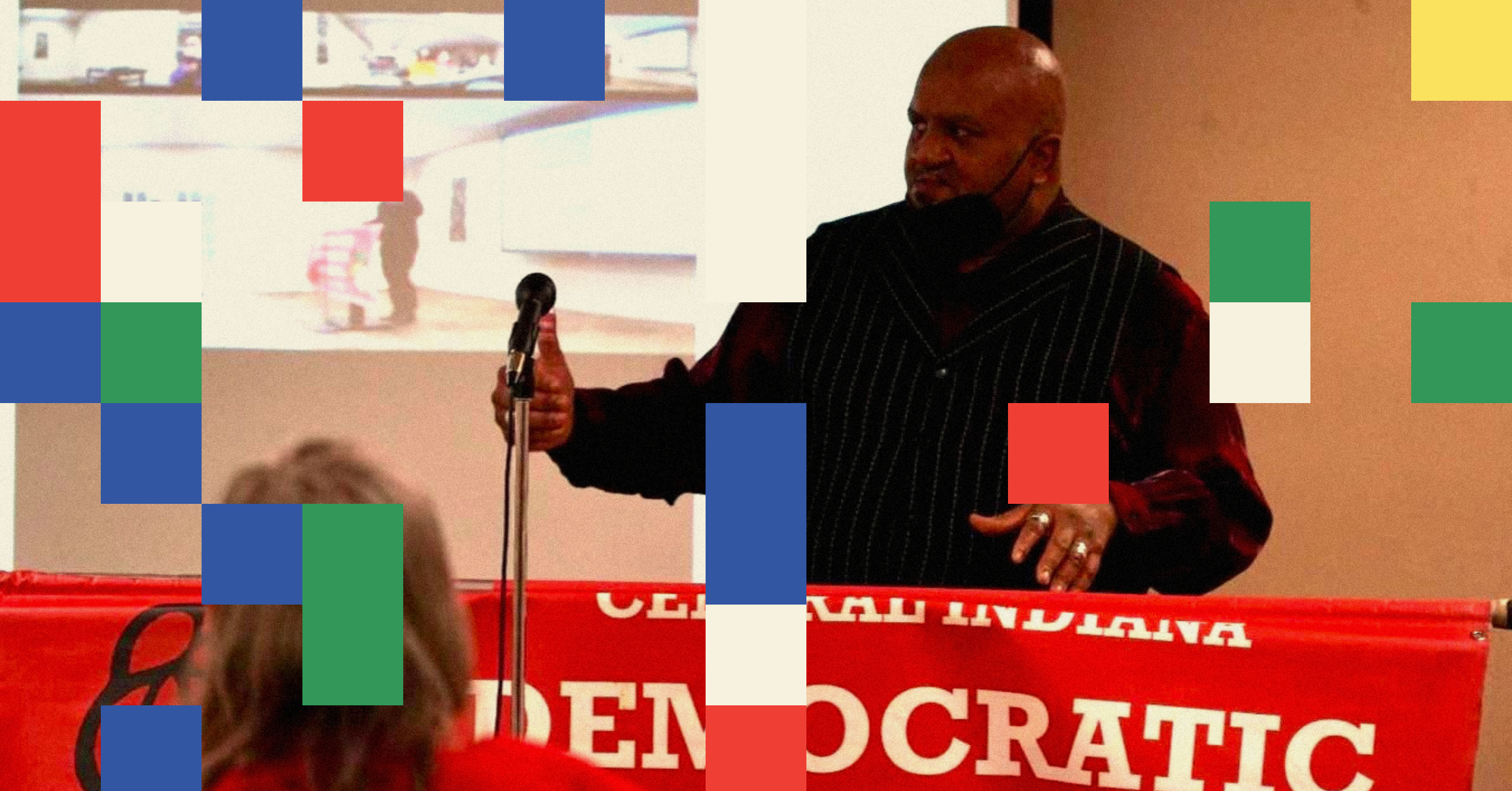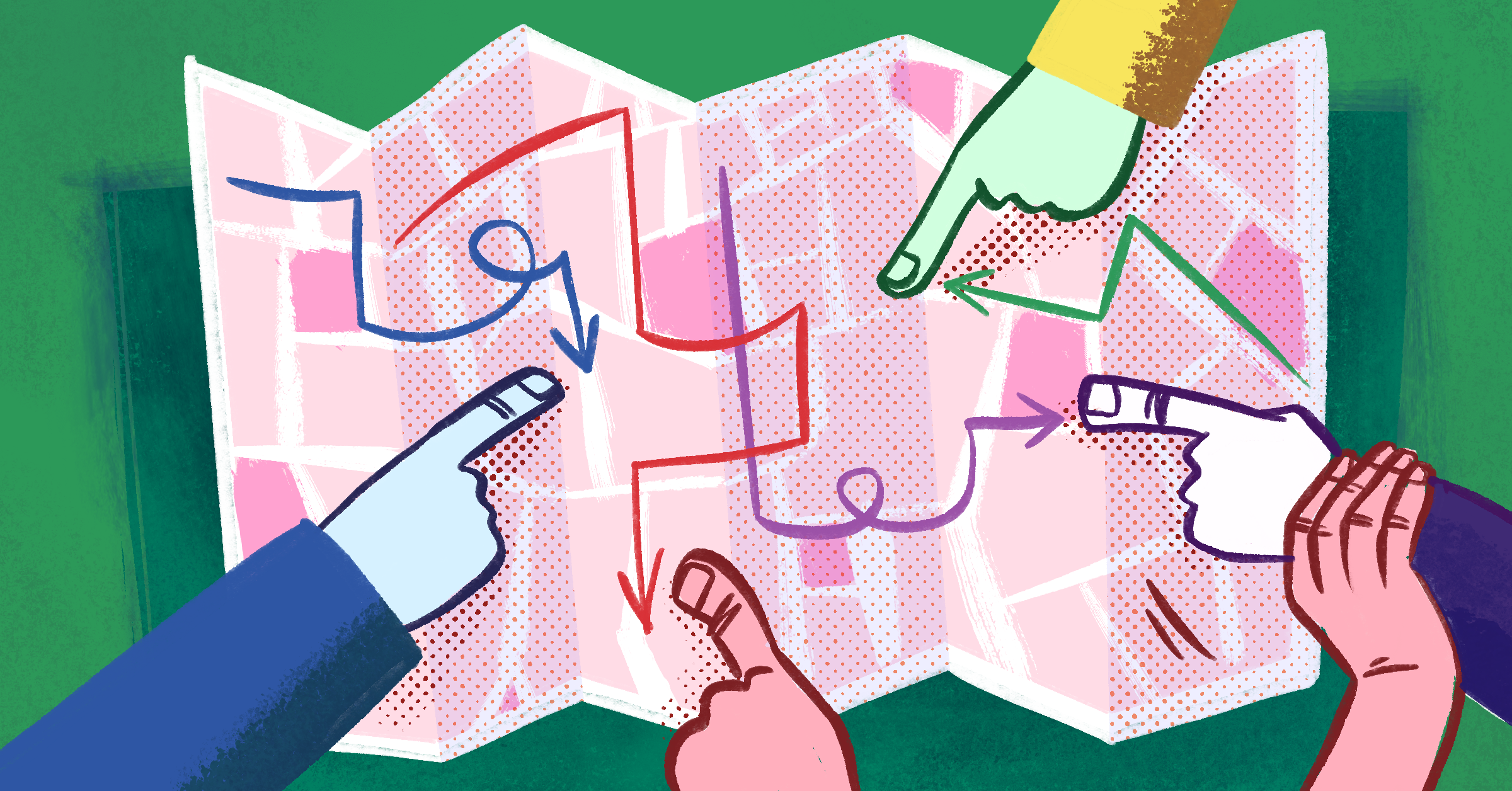In a recent article in Working Mass, Henry De Groot criticized advocates of the Rank and File Strategy for not articulating the positive role that union staffers should play in the unions they work for. He quoted a remark I made at this year’s “Socialism” Conference:
“There is some real tension here because when you have a truly democratic union there are going to be tensions between your staff union and the other things that the membership wants and needs to spend the limited resources on,” Hurd told the audience. “As staffers, we need to be taking the democracy of the union seriously.”
I’d like to elaborate on how socialists who are staffers in unions can advance the Rank and File Strategy because I do believe we have a “positive role to play.” As a socialist and a union staffer, I believe that our most important goal as union staff should be bolstering the member democracy and rank-and-file energy of unions. This means clearing paths for members to take on tasks and leadership and inspiring members to demand more from their bosses and their union. It also means respecting the decisions of the membership’s democratic processes, even when we disagree with them.
But I draw a distinction between the positive role that we as staff can play, and the role that our staff unions play in the struggle for union reform. Staff unions can serve an important role in protecting against workplace abuses and excesses and ensuring that the terms and conditions of employment are carried out as promised. That said, I believe strongly that staff unions should never interfere in members’ democratic right to determine the course of their union and to allocate resources accordingly. Unlike most unions, staff unions are not a vehicle for class struggle, and we do ourselves and the socialist movement a huge disservice when we pretend otherwise.
Staff Have A Role To Play
I got my start in the labor movement as a bartender attempting to organize the brewery where I worked. After we affiliated with a major union, we were paired with an organizer who never learned how to work our spreadsheet, gave us the same useless pamphlets over and over again, and never did the due diligence of even checking with the union’s regional body to make sure that his local had jurisdiction over our industry. Thanks to our own efforts, my coworkers and I were able to get almost 70% of the shop signed on cards. Thanks to his negligence, our filing triggered a turf war in the union that completely threw off our organizing timeline, allowing the company to launch a vicious anti-union campaign that cost many of us our jobs.
Needless to say, I was wary of union staff after that experience.
Four years later, I myself am a union staff organizer and my approach is deeply informed by that early experience. Because I know what it feels like to self-organize with my coworkers, I bring to my work the understanding that worker empowerment is everything. While most union staff pay lip service to this idea, many struggle to put it into practice. It is often harder to organize members into taking on tasks rather than just executing them yourself, but it is by exercising these muscles and building these skills that workers learn the ability to lead. This is absolutely essential to our long-term project of building a working class ready to run the world.
When I first learned about the Rank and File Strategy, I thought it meant that everyone who can should get a “real job” and then spend their life organizing their coworkers in a strategic industry. I have come to realize that this tactic is just one piece of the strategy and that we neglect other tactics at our peril. While it’s vital to move socialists into rank-and-file jobs and give them the tools and knowledge to organize their coworkers, they are held back in their fight against the capitalists if their union leadership and staff aren’t on the same page.
So what, then, is the role of a socialist staffer?
The first principle we can take as socialist staffers is to create fertile ground for organizing on the shop floor. This means building communication and engagement structures that are easy to navigate for members and when possible, enjoyable to take part in. We can also play the role of mediating conflict that has the potential to be disorganizing.
Staffers can also take care of grunt work. The vast majority of members engaging with their union are doing so in addition to a full-time job and family obligations. This means their time is precious and should be spent on making decisions and producing things. Tasks that are tedious should be done by staff and we should be the ones arriving early for set-up and cleaning up after everyone else has gone home.
The third role of a socialist staffer is to provide our analysis when requested. Because we have a worldview that connects specific workplace struggles with a broader structural system of exploitation, we can often put issues in a broader context for workers. We also have opportunities to inject revolutionary optimism into our organizing and inspire our members with stories from other parts of the labor movement, other areas of the world, and other eras of class struggle. We can even directly connect members with other workers in their industry to build interpersonal connections and fight together. While it is not our role to hammer Marxist principles into our members, we do have a lot of opportunities to share politics now and then.
The final, and I think most essential, role of a socialist staffer is to protect the democracy of the union. This is a task that we execute in grand ways at annual conventions as well as hundreds of tiny little ways in our day-to-day decision making. We protect that democracy by giving members the tools and knowledge to engage in the process. A union is often people’s first experience with real democracy and dealing with the stresses and disappointments that come along with that process is important for keeping people committed through the struggles.
Often, we must protect internal union democracy by deferring to the membership and their democratic processes. This can be challenging because as staff we can be tempted to view ourselves as the “experts in the room” when it comes to organizing. It’s very easy to use that shortcut rather than engaging in the way that is most democratic, which is to frame the question to be answered, give a perspective or pros and cons, and then step back and allow leaders to reach their own conclusions. Even if we are sure that the decision is a mistake, it is their mistake to make and their process to learn from. They could always prove us wrong, and we get to learn something new. We are there to facilitate the membership in moving through that learning process.
Our duty to protect our unions’ democracy can be most fraught when it comes to our relationship with union leadership. While unions are, for many workers, the only democratic institution that exists in their lives, they are often very flawed democracies, with insufficiently democratic practices and leaders who fail to enable members to exercise power in the ways we would like. While there are certainly many situations where this is a result of a leader being selfish or ill-intentioned, there are plenty of cases where well-meaning elected leaders are driven into traps by conservatizing material conditions.
As staffers, we can, as described above, help guide our leaders where we think it may help them and the union to develop better internal democracy, but we also need to be prepared to recognize that, sometimes, some union bureaucrats are beyond saving and will never support democracy and militancy in their union. That does not mean, however, that we can treat any disagreement with leadership as the result of a democracy deficit, cherry-picking members who agree with us to cast ourselves in the role of the true avatar of the members’ wishes. It would serve us well to have some grace as members go through the messy process of democracy, especially in unions that are undergoing transformation in response to the clear expression of the will of their members.
Do Staff Unions Have A Role To Play?
Socialist staffers can, through these tasks, help empower the rank and file and build ties between the labor and socialist movements. But it’s impossible to forget that this work is also a job. These jobs, while we’re doing them, are our livelihoods, and many staffers reasonably turn to the same place we encourage all working class people to turn for support to defend and advance their livelihoods: to a union. But should a union of union staff function the same way as unions do generally? What role should staff unions play?
The key distinction here is that when you work at a union, you don’t work for a capitalist or for a public agency that’s embedded in capitalism. You’re selling your labor to your fellow workers, in order to help them in their struggle with capitalists.
I am a member of my staff union and on several occasions have been grateful to have its organized representation. For example, when a large number of my coworkers were all required to work beyond our usual cap on compensatory time, our union asked for the cap to be lifted and we all got a couple extra days off. Staff unions can also be helpful for workers experiencing abuse or sexual harassment. Power dynamics at work are real and there are many cases in which having an organized body through which to advocate for yourself and your coworkers is vital.
But we must recognize that we, as union staffers, are in a unique position. Unlike most workers who are in a necessarily antagonistic relationship with the boss who is exploiting them for their labor, we serve an organization engaged in class struggle. We are paid with the hard-earned money of our members and should view our labor as grounded in a very different kind of relationship than those of capitalist boss and worker.
Of course many of us do still have managers, and deserve protection from potential abuse at the hands of those with more power than us at work. But since our positions are directly funded by member resources, and created to serve those members’ interests, they must also be subject to the democratic will of that collective.
So what does this mean in practice?
In part it means submitting to oversight. This may look like logging detailed hours, meeting with members to give updates, and opening ourselves up for critique. It also means that when the members or their elected leaders reallocate resources, we have to respect those decisions. This can be quite painful. Projects we were very invested in can be canceled or defunded. In some cases it can mean that positions are cut or moved around.
This requires a little bit of ego death. As socialists we romanticize the role of the worker as the protagonist of class struggle. Many of us got into this line of work because we want to embody that militant worker energy and lead that charge. Being a staffer often requires us to recognize that we are not here to be the main character but to set the stage and direct the spotlight.
That’s why staff need to be thoughtful about the tactics we use for self-advocacy. It’s perfectly reasonable to speak openly about dissatisfaction we may have with the job and confront our employer about making necessary changes. But using our structural leverage to disrupt membership democracy, such as shutting down deliberative assemblies or intervening at political conferences, puts our personal career interests on a pedestal above the purpose of the organization.
That is not to say that any good “Rank and File Strategy” socialist should eschew staff roles. Quite the opposite. My experiences as a DSA organizer and new-shop organizer are the only things that adequately trained me to be a union organizer. It would be a disservice to the labor movement for us to not recognize that our experiences with internal democracy and “do it yourself” organizing can serve the goal of shifting US unions in the direction of being true vehicles for class struggle. We need socialist staffers to help clear a path for our rank and file leaders (some of whom are socialists already but many of whom may never fully make the leap) to take charge of their unions, their workplaces, and eventually the world.
A Thought Experiment
It’s easy to think about these concepts in the abstract, but it might be helpful to attach them to something more concrete.
Let’s say that a caucus decides to hire a staffer. This staffer is not paid from any surplus value the caucus is making from their labor but purely through the hard-earned money of its dues-paying members. Let’s say the group tasks this staffer with writing and editing its publication. Then, let’s say, the membership determines that it would be a better use of their limited resources to put them toward funding a very specific regional short-term effort.
This staffer is, sadly, facing the loss of their position. But the ultimate goal of building working class power has been democratically determined to be better served by a different project by someone else in another place. While it might be tempting to fight the “bosses” and advocate for one’s livelihood, this person would have to admit that it would feel wrong to try to override this democratic decision in favor of their individual interest. We certainly shouldn’t use all of the same tactics we would have our members use against their bosses. We’re not fighting the capitalists; these are our fellow workers democratically making these decisions, and we should avoid the kind of antagonistic relationship that exists between workers and bosses in the capitalist economy.
In the case of our nation’s largest unions, the examples of reallocation like this are much bigger and more complex. We might not always agree with the decisions of leadership or even be certain they are representative of the true will of the membership. But to reject the primacy of that membership and its democratically elected leadership is a slippery slope. There are a million little ways that a staff member can subtly undermine the will of the membership just by assuming that they know better.
Our role as socialists in the labor movement is, above all else, to empower worker democracy. This often means working hours that encompass both typical working hours and the times that workers are available. This often means putting a lot of time and effort into projects we aren’t convinced are the most worthwhile use of our time, to give members a chance to learn for themselves from a success or failure.
For me this has meant building and executing six strikes over the past two years and being outside for days in the hottest parts of summer and the coldest parts of winter. The most recent of these strikes was one that I wasn’t convinced was strategic. Staff laid out the pros and cons as we saw them, created space for members to make their opinions heard, and ultimately, respected the decision of elected leadership to move ahead. This strike ended up being hugely empowering for our members, who accepted the invitation to take responsibility and make it their own. Once the members made their decision, I set to supporting their ideas in every way I could. The workers built a temporary village across the street from their bosses, brought grills and enough food to share, picked up the megaphones and devised the chants. Creating something together their way transformed them both as individuals and as a collective.
I am proud to be a staffer at a union that has recognized that workers must be encouraged to take the lead. I am proud to serve my members and sacrifice when necessary to help them win. And if the democratically elected leadership of my union determines that my position isn’t the most strategic use of resources, I will respect that. Any socialist worth their salt would.




